
Before the 1920s, iodine deficiency was incredibly prevalent in North America.
Due to the crucial role played by this nutrient in our thyroid function and brain development, the introduction of iodized salt as a means of deficiency prevention has since become a food industry staple.
Still, insufficient iodine intake is far from being a thing of the past: approximately 30% of the world’s population is estimated to be at risk for iodine deficiency. Many parts of the world do not have enough iodine available through their diet, and low iodine levels continue to be a major public health problem.
So, how do vegans fare when it comes to the iodine content of their diet?
Unfortunately for plant-based eaters, getting enough iodine through a vegan diet can be just as challenging as getting enough vitamin D or B12 and a vegan iodine supplement is the best solution.
What Is Iodine?
Iodine is an essential trace element needed to make thyroid hormones, the hormones that control your body's metabolism and cell production, as well as aiding in both brain and bone growth processes.
On top of that, iodine is a fundamental nutrient for pregnant women and infants, as it is needed for optimal brain development and healthy cognitive functioning — two things that no parent in their right mind would ever neglect when it comes to their growing child!
Iodine is an essential component of our body's thyroid function, yet oddly enough, it's incredibly hard to get enough iodine from natural dietary sources alone. Some of the most common sources of iodine include fish, such as tuna or cod, shrimp, dairy products, and iodized salt. Note that dairy products and iodized salt are only fortified with iodine, but they still make for the most common and accessible sources of iodine, so much so that the majority of people will never really think about their iodine intake. Vegans, however, should be very attentive to the iodine content of their food, as vegan sources are few and far in between, and iodine supplements for vegans are yet to become as widespread as vitamin B12. (Though really, they should be!)
Why Do Vegans Need to Pay Attention to Iodine?
Iodine has long been an overlooked nutrient in vegan diets, and there is enough data out there to make this a simple fact — not just an opinion.
Earlier this year, a systematic review was published summarizing the findings of 15 research articles on the iodine status of omnivores, vegetarians, and vegans in Europe and in North America. The conclusion was that vegetarian and vegan median urinary iodine concentrations tend to fall below national values in most countries, with vegans specifically found to be at the highest risk for low iodine status.
So why are health-promoting vegan diets (even those with essential vegan multivitamins including b12, vegan omega 3, and vitamin d3) lagging so far behind when it comes to iodine intake?
Well, one answer is that vegan foods like plant-based milks, spreads, and meat substitutes are rarely ever fortified with iodine. Second, vegan multivitamins often fail to provide an adequate amount of iodine in their formulas. Those of us following a vegan diet should pay close attention to our daily intake of iodine, making sure to get just enough to cover our recommended daily amount through either supplements or iodine-rich vegan foods like seaweed. However, consuming too much iodine is just as dangerous for us as an iodine deficiency is!
Health Symptoms of Iodine Deficiency

As mentioned at the start of this article, iodine deficiency is an incredibly widespread issue, a reality affecting all kinds of diets, and certainly not just plant-based ones. If you are worried about a possible iodine deficiency, you shouldn't waste any time in contacting your primary care physician for a prompt check-up — ignoring any of the following symptoms can lead to irreversible damages to your health, and it won't do the vegan movement any good either!
Watch out for any of these symptoms:
Goiter
Goiter occurs when the thyroid gland grows abnormally big, and it is one of the easiest tell-tale signs of iodine deficiency, manifesting in a noticeable swelling in the front of the neck.
Hypothyroidism
Low iodine levels are the driving cause of hypothyroidism worldwide, as the trace mineral is required to make thyroid hormones and to support metabolic function. Symptoms of hypothyroidism include sensitivity to cold, muscle weakness, weight gain and puffiness, constipation, slowed heart rate, and irregular menstrual periods.
Weight gain
Low iodine levels can slow your metabolism, encouraging food to be stored as fat instead of being burned for energy. This may lead to some unexpected (and often unwanted) weight gain, as well as fatigue and weakness.
Hair loss and dry skin
Thyroid hormones help control the growth of hair follicles as well as skin cell regeneration. Poor iodine intake is linked to dry, flaky skin and excessive hair loss.
Critical Vegan Iodine Deficiency Warning

In 2020, very few vegans are fully aware of the important role iodine plays in our bodies, whether they're newbies or seasoned plant-based champions.
While thyroid gland issues like goiter and hypothyroidism have to be taken seriously, there are other severe, irreversible consequences of iodine deficiency that must be taken even more seriously by those following a vegan diet: brain development problems in infants and children.
Severe deficiency in pregnant women has been associated with miscarriages, stillbirth, and congenital abnormalities in their newborns. Children of mothers with severe deficiency during pregnancy can also have intellectual disabilities and problems with normal growth, hearing, and speech.
Insufficient iodine consumption is believed to be the most common preventable cause of intellectual disabilities in the world, making the trace mineral one of the most crucial nutrients to watch out for in our daily diet.
How Much Do We Really Need?
The good news is that we don't actually need that much iodine in our diets in order to get our thyroid hormone going.
Getting the exact adequate amount on a vegan diet, however, can be much of a balancing act.
While the RDI for adults is set at approximately 150 mcg per day, other foods we may be consuming as part of our diet can inhibit iodine absorption and actively counteract its effects. These foods are known as iodine antagonists, and they include a large number of vegan staples such as soy, flaxseed, and raw cruciferous vegetables. So for example, if we were to take a random vegan consuming large amounts of soy products, but neglecting to consume a sufficient amount of iodine, we'd see that their deficiency symptoms will be getting progressively worse.
But can you get too much of a good thing? In the case of iodine, you sure can.
Excessive consumption may lead to toxicity, a process that quite paradoxically inhibits thyroid hormone synthesis altogether. This can occur when an individual is consuming more than 1000 mcg per day, and down the line, it may lead to conditions like hyperthyroidism, autoimmunity, and hypothyroidism.
How Does a Vegan Get Iodine?

Now that we know exactly how much iodine we should be getting on a daily basis, let's dive into what vegan foods with iodine you should be consuming on a daily basis.
Seaweed is overwhelmingly the best source of iodine for vegans, with varieties like wakame, dulse, and nori containing between 40 and 60 mcg of iodine in one single sheet. But there's a catch: the availability of iodine from sea vegetables and seaweed can vary greatly, and kelp specifically should be consumed in moderation, as its iodine content per bag is high enough to cover your needs for five whole years!
Not a fan of the fishy taste and smell of seaweed? Other vegan sources of iodine include fruits like prunes and strawberries, as well as some types of beans. The amount of iodine you'll find in these foods, however, largely depends on the iodine content of the soil and on any fertilizer that was used.
- Kelp
- Wakame
- Dulse
- Nori (or Laver)
- Alaria
- Strawberries
- Potatoes
- Green beans
- Bananas
- Prunes
- Cranberries
- Corn
- Navy beans
- Lima beans
- Iodized salt
So, Do Vegans Need Iodized Salt?

Salt is considered a leading dietary killer, worldwide. Excessive sodium intakes have been linked to dangerous conditions such as hypertension, kidney stones, and even heart disease.
If we are striving to become our healthiest selves, watching our sodium intake is definitely a must — the iodine content of iodized salt shouldn't be the only deciding factor when you're out for your grocery shop, especially when you can find iodine in foods that are much better for your overall health.
Getting your iodine from seaweed or supplementation should be the preferred choice for health-minded vegans.
And on that note...
Do Vegans Need an Iodine Supplement?

If the sound of having to eat seaweed regularly has already scared you off and if you are keen to watch your salt intake as a healthy vegan, then an iodine supplement like ours will be the ideal choice for getting your optimal amount of iodine. Investing in a good-quality supplement will ensure you are getting just enough to thrive and support your thyroid hormones, while at the same time avoiding taking too much iodine and running into toxicity issues.
What sources of iodine you'll pick are ultimately up to you, of course.
Getting the majority of your nutrients from whole food plant-based sources like seaweed will always be the best option, but nobody can deny the convenience of supplementation to get the job done, especially with tricky (but absolutely crucial) minerals like iodine!

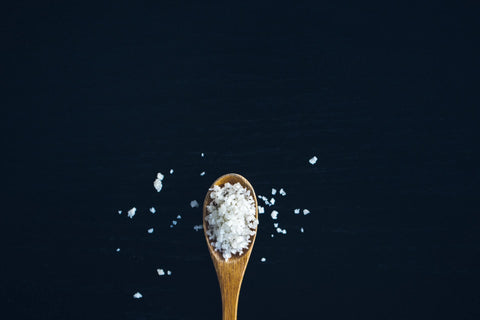



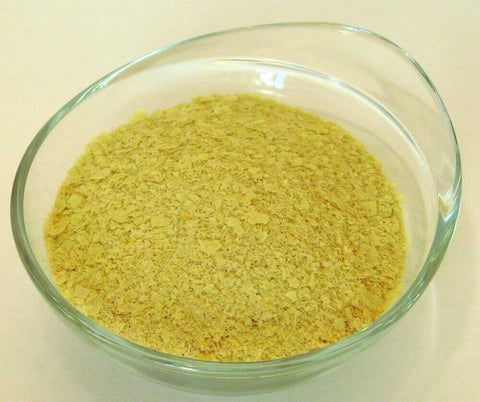
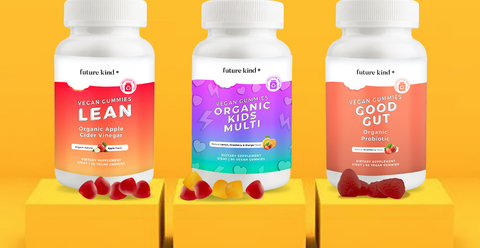
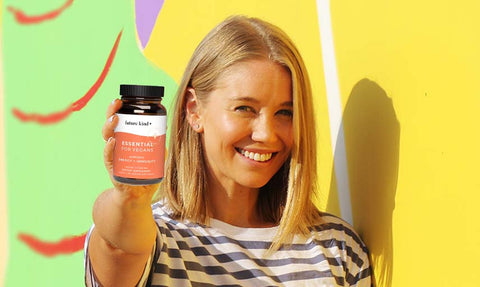
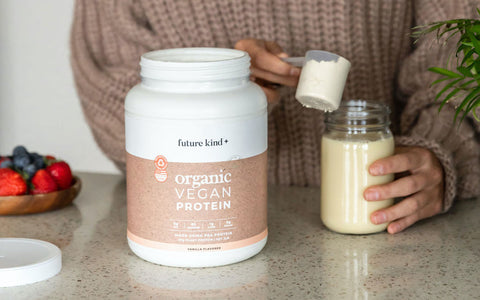
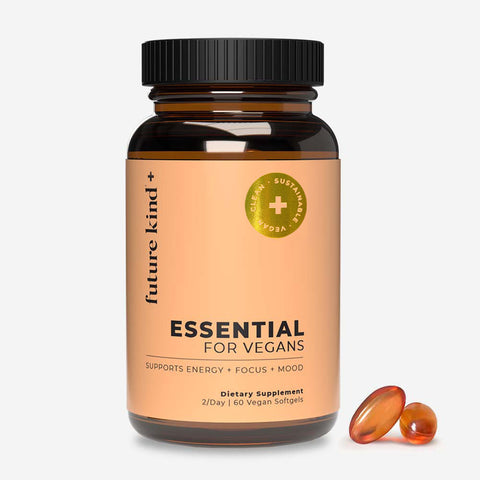
Comments (0)
There are no comments for this article. Be the first one to leave a message!